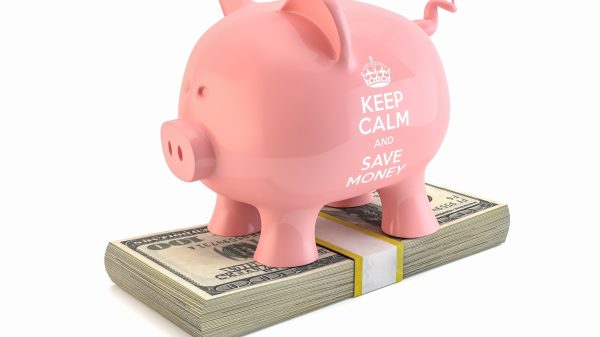When it comes to the need for funds, you have a pool of loan types to choose from. There are loans aimed at satisfying different needs of the borrower and the needs of different borrowers. One such type of loan is a personal loan. It should be noted that there are different types of personal loans. Which one you will choose depends on your needs. But before applying for a personal loan, make sure that you have gathered enough information for each type. Make sure that you understand the pros and cons of each type of loan, as well as personal loans. So, you should know the things you should consider before applying for personal loans.
Things you need to have in mind about personal loans
There are different types of personal loans – the first thing you should know before shopping for a personal loan is the types of personal loans available. There are two basic types of personal loans: secured personal loans and unsecured personal loans. Secured loans are loans that are guaranteed by some form of collateral, i.e., assets. On the other hand, unsecured personal loans are not backed by any form of collateral. Before deciding which type of personal loan you will apply for, gather information about the different characteristics of each type. Things such as interest rates, repayment period, loan amount, and approval process are tightly related to the type of personal loan.
Check your FICO score – before applying for a personal loan. Your credit score has a major impact on the decision of whether or not a loan will be approved. In addition, your credit score also influences the interest rate you will pay on your loan. The aim of checking your credit is two folded. Firstly, you will know approximately what type of interest rate you will have to pay. Second, you can see if there is a wrongfully recorded item. More precisely, check for errors in your credit reports. See if there is an item that should be removed from the credit score. If you find some form of error in your credit report, inform the relevant credit bureau. Check your credit report with Experian, Equifax, and TransUnion.
Understanding the interest rate – is one of the most important factors. This is so because, basically, this is the highest cost you will have for your loan. The interest rate, to a large extent, is connected with your credit score. The higher the credit score, the lower the interest rate. Keep in mind that different lenders can charge a different interest rates for the same credit score. You should also understand the difference between interest rate and APR. In addition, interest rates can vary even among the type of lenders (banks, credit unions, and other lending institutions). Thus, you should shop around for the best terms from different types of lenders.
Another thing you should consider before applying for a personal loan is the type of interest rate charged. Two types of interest rates can be charged: fixed interest rate or variable interest rate. The most common interest rate for a personal loan is a fixed interest rate. But variable interest rates can also be charged by some lenders.
Comparison is important – before applying for any type of loan. Namely, you must see if there are other sources you could use or other types of loans you can apply for. Compare the interest rate on different types of loans. Make sure you are taking into account the fees as well. Maybe some other form of loan would be more appropriate for your need.
Consider the additional fees and charges – the interest rate is not the only cost of the loan. Every loan has additional fees and charges that are asked by the lender. These fees can pile up to a substantial amount if you don’t pay attention. There is an origination fee as well as an application fee. In addition, you could have a prepayment fee. Failure to understand all fees associated with your loan will make your comparison invalid. Because you might decide to apply for a loan with much higher fees, resulting in a much higher cost of the loan.
A personal loan for debt consolidation – can be used to get rid of your high-interest rate debt. Namely, personal loans are often used to repay credit card debt and eliminate the high-interest charges accordingly. There are other uses of personal loans as well.
The type of credit check performed – one of the mistakes some borrowers are making is that they fail to know what type of credit check the lender will perform. The type of credit check performed can impact your credit score. There is a soft credit inquiry and a hard inquiry. A hard credit check can negatively impact your credit score. Meaning that it can lower your credit score by a couple of points. The decrease in your credit score can be up to five points. In case you want to make several applications for the same type of loan, make it in a shorter period. This way, the impact will be much lower on your credit score. This is so because several applications for the same type of loan can be considered as a single loan inquiry by the credit bureaus.
The need for collateral – depends on the type of personal loan. Usually, personal loans tend to be unsecured loans eliminating the need for collateral. So, if you default on your loan, the lender cannot take ownership of your property. This is why unsecured loans have higher interest rates. Keep in mind, though, that the lender can undertake collection actions. The lender will report late payments to credit bureaus, can file a lawsuit against you or/and can hire a collection agency. You do not want either of these to happen, so make sure you pay your monthly payments on time.
Prepayment penalty – should be taken into account. You never know whether you will be able to repay your loan before its maturity date. Don’t be skeptical about this possibility. There are numerous reasons why you want to pay back your loan before it is due. Lenders earn money by charging you an interest rate. Therefore, early repayment of your loan would mean that they will earn less money from your loan. For the purpose of offsetting this “loss,” they might hit you with a prepayment penalty. The size of the penalty can vary between different types of lenders. In addition, some lenders might not charge any early repayment penalty. There are numerous banks and credit unions which do not impose this form of fee. Regardless of whether you plan to repay your loan early or not, try to get a loan without this prepayment penalty.
No usage limits – for money from a personal loan. Namely, there are very few limits regarding the way you could use the funds from personal loans. A smart thing to do will be to ask your lender if there are any limitations regarding the usage of the money.
The need for a co-signer – if you fail to meet some of the criteria. Namely, the lender can ask for a co-signer if you have a low credit score, insufficient income level, lack of adequate collateral, etc. The purpose of the co-signer is to guarantee that he/she will repay the loan if you default.
Not being able to pay on time – can have negative consequences. In order to avoid these consequences, inform your lender that you will not be able to meet the monthly payment on time. See if your lender is willing to delay your payment. Keep in mind, though, that delaying payment should not be your first choice. Although the lender might be willing to delay or reschedule a payment, you might be charged additional fees or charges.
When shopping for a loan, you are faced with a pool of information that can help you make the loan decision. But all of this information will serve you no good if you are not trying to find it. You should try and gather as much information as possible before making any decision. Thus, you should have in mind the above things if you are planning to apply for some type of personal loan.







